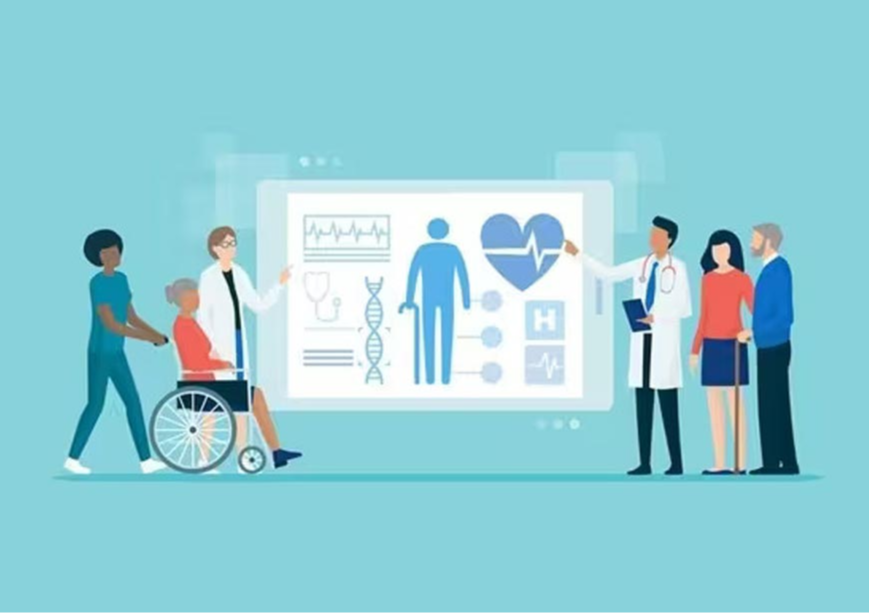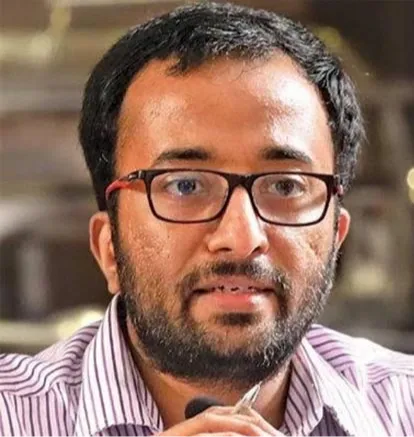-
CENTRES
Progammes & Centres
Location

In a world where health disparities increasingly challenge the social fabric, the quest for health equity and inclusion stands as a pillar of optimism and a call to action. India's journey towards health for all exemplifies a blend of innovation and dedication, visible through unique initiatives like employing elephants to navigate challenging terrains for vaccine delivery, showcasing a remarkable commitment to reaching every citizen, regardless of location. India, with its significant strides in healthcare over the last decade, embodies the spirit of innovation and resilience. The country has made remarkable progress in eradicating polio, improving maternal and child health, and increasing life expectancy. This has been achieved through a combination of government initiatives, technological advancements, and community engagement. However, challenges remain.
The country has made remarkable progress in eradicating polio, improving maternal and child health, and increasing life expectancy.
The Health Equity and Inclusion in Action report, launched at the Raisina Dialogue in New Delhi on the 21st February offers valuable lessons for countries often compounded by binding constraints, striving to navigate the complex landscape of health transition through its extensive analysis of global healthcare initiatives. India, and many other middle and low income countries, with their unique socio-economic diversity and healthcare challenges, stand at a critical juncture where the insights from such global experiences can catalyse transformative changes in its pursuit of universal health coverage (UHC).
The report, produced by the Observer Research Foundation and Gilead Sciences, explores health equity and inclusion while arguing for a healthcare system that is not only accessible but also responsive to the diverse needs of its populace. The global examples within the report, ranging from initiatives providing telemedicine in remote areas to community-led health initiatives, illustrate the power of innovative solutions in overcoming barriers to healthcare access and quality.
Technological advancements, particularly in the digital health domain, have emerged as crucial enablers in democratising healthcare access. From AI-driven diagnostics to mobile health applications, technology offers a pathway to overcoming geographical and financial constraints. However, the report also cautions against the digital divide and underscores the importance of ensuring that technological solutions are inclusive and accessible to all segments of society.
Technological advancements, particularly in the digital health domain, have emerged as crucial enablers in democratising healthcare access.
A key takeaway from the report is the concept of task shifting and the smart use of technology to enhance health system efficiency. By delegating certain healthcare tasks to non-physician health workers and leveraging digital tools, resource-constrained settings can expand access to essential health services. This not only improves coverage but also empowers communities, fostering a sense of ownership and participation in health system strengthening.
The report highlights the iKure initiative in India, which employs a hub-and-spoke model to deliver primary healthcare in rural settings. This model, supported by community health workers, has proven effective in bridging healthcare gaps. Mizero Care in Rwanda reaches out to marginalised communities with mental health services, using digital platforms to overcome stigma and accessibility barriers. The Jeeon Foundation in Bangladesh exemplifies how digital networks can upgrade informal health providers, offering a model to integrate informal healthcare providers into the formal health system. Unjani Clinics in South Africa offer insights into creating self-sustaining healthcare models through social entrepreneurship, providing affordable and quality care.
India, like many other countries of the global south, faces the dual challenge of combating infectious diseases while also curtailing the rise of non-communicable diseases (NCDs). These concurrent health threats demand a robust, inclusive healthcare strategy that transcends traditional approaches. The report discusses how the digital leap in healthcare has shown tremendous potential in bridging access gaps.
However, to fully realise this potential, countries must address the digital divide and ensure that technological advancements are inclusive. Community empowerment, highlighted in the report through job creation and upskilling of healthcare workers, presents another avenue for strengthening the healthcare system. By adopting entrepreneurial models and integrating informal practitioners into the formal sector, country health systems can enhance community resilience and healthcare capacity.
Community empowerment, highlighted in the report through job creation and upskilling of healthcare workers, presents another avenue for strengthening the healthcare system.
The report's call to action is a reminder of the collective responsibility to advance health equity and inclusion. It invites policymakers, healthcare providers, and the community at large to embrace the lessons learned from global experiences. By doing so, we can pave the way for a future where health is a universally accessible right, not a privilege determined by socioeconomic status or geography. The report's recommendations for leveraging task shifting, improving medication quality, and enhancing funding for equity-focused programmes offer strategic pathways for the world.
As we reflect on the insights from the Health Equity & Inclusion in Action report, it becomes clear that the path towards universal health coverage requires a multifaceted approach. It demands innovation, collaboration, and a relentless commitment to inclusivity. India's achievements and ongoing efforts provide a template for what is possible when vision, innovation, and collaboration converge towards the noble aim of health for all. Let this report inspire us to build on these foundations, forging a healthier, more equitable future for generations to come.
This commentary originally appeared in Hindustan Times.
The views expressed above belong to the author(s). ORF research and analyses now available on Telegram! Click here to access our curated content — blogs, longforms and interviews.

Oommen C. Kurian is Senior Fellow and Head of Health Initiative at ORF. He studies Indias health sector reforms within the broad context of the ...
Read More +